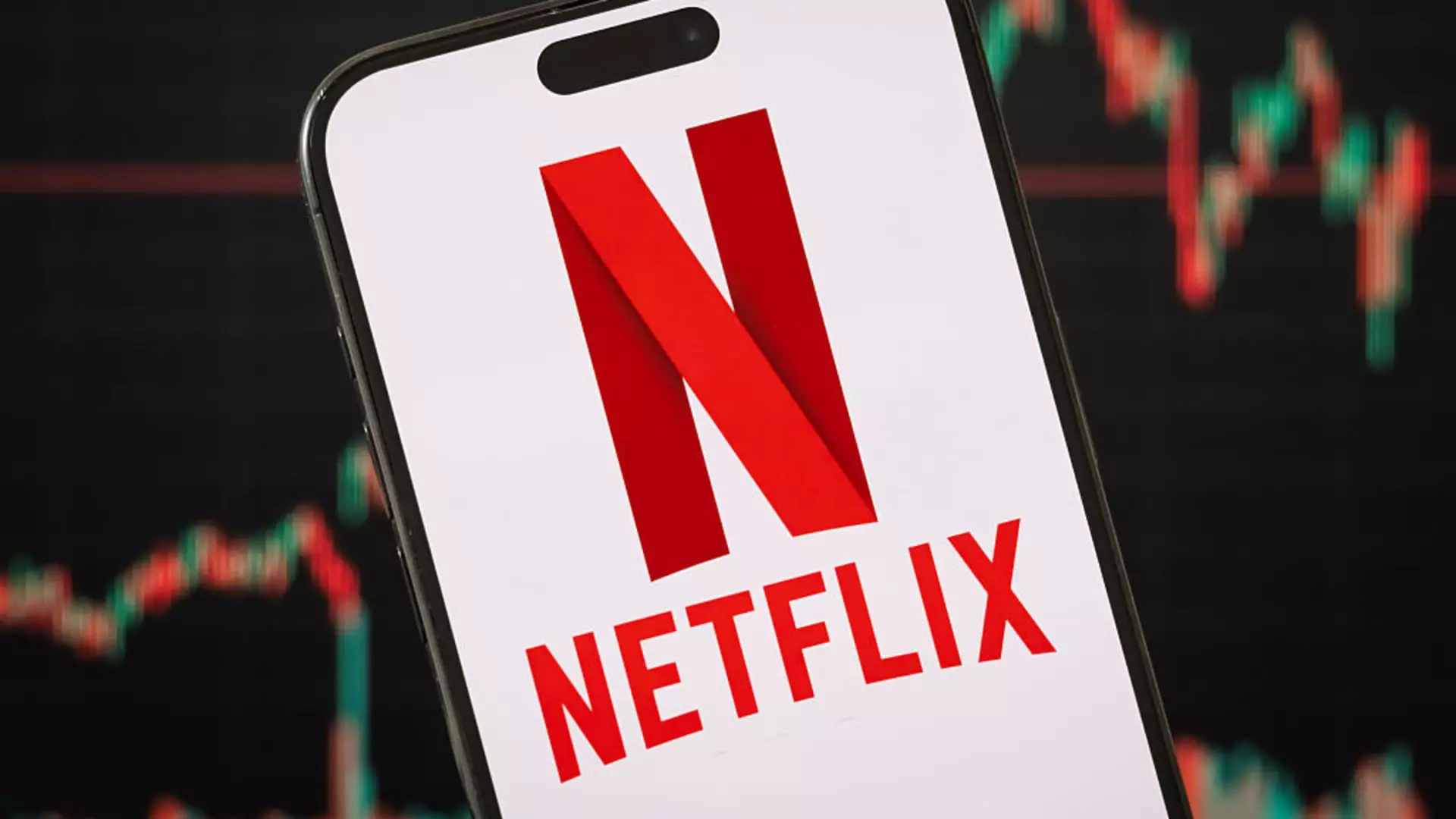Netflix has recently captured the spotlight in the financial markets with an unprecedented eleven-day streak of stock price increases. This remarkable achievement not only eclipses its previous record of nine consecutive days in early 2019 but stands as a testament to the streaming giant’s resilience and ability to adapt to an ever-evolving landscape. Investors should take note because a rising stock rarely tells the full story; it’s crucial to discern the underlying factors that contribute to such a performance.
The surge comes after a positive earnings report where Netflix announced a 13% revenue increase in the first quarter of 2025. While it’s commendable to witness such growth, one must question whether this momentum is sustainable. Record performances often create a false sense of security among investors; hence, reliance solely on stock price action can be misleading.
Resilience Amid Economic Uncertainty
One of Netflix’s significant advantages is its unique market positioning. In difficult economic climates, entertainment services like Netflix tend to remain strong; they are often viewed as affordable luxuries that people won’t easily cut from their budgets. The company’s co-CEO, Greg Peters, noted that they haven’t observed significant adverse effects even during economically tougher times. However, skepticism remains regarding how long such patterns can hold.
The streaming industry is rife with competition. While Netflix has dominated the market, new players continually emerge, and traditional media companies are scrambling to catch up. A growing number of consumers are pondering their subscription choices. Consequently, while Netflix currently boasts impressive resilience, it could be a gamble to assume it will remain unscathed by economic downturns and competition.
Challenging the Competition
Contrast Netflix’s success with the plights faced by traditional media giants like Warner Bros. Discovery and Disney, both of which have suffered stock declines since the Trump administration’s economic policies were instated. The struggles of companies that are reliant on older models of revenue generation indicate a significant transition in consumer behavior. As traditional media crumbles, Netflix’s vigor remains a beacon; yet, it’s vital to avoid generalizations.
Critics argue that Netflix’s capacity to maintain its position hinges more on prevailing market conditions than on any lasting competitive edge. The post-pandemic world has shifted how people consume entertainment, and complacency could lead to a loss of market share. Consumers today are more inclined to switch services than ever before, challenging Netflix to continuously innovate and provide value.
The Price Factor: Is Growth Sustainable?
In the accompanying earnings report, Netflix also cited its ability to increase subscription prices while retaining its customer base as evidence of its healthy demand. The standard plan now costs $17.99, while an ad-supported option is available for $7.99. Although it appears to have maintained customer loyalty, the drop in transparency regarding subscriber numbers raises a red flag. This shift to focusing on revenue growth instead of sharing detailed membership statistics could be interpreted as a defensive maneuver.
An increasing price tag can be a double-edged sword; while it enhances revenue in the short run, it could risk alienating a growing number of subscribers. As competitors launch lower-cost alternatives, the pressure will be on Netflix not just to sustain its performance but to justify the cost with consistent, premium content.
Market Sentiment and Future Outlook
Recent analyses from firms like JPMorgan express optimism about Netflix’s trajectory within global streaming markets. However, it’s vital to remain cautious. Market sentiment can fluctuate wildly, and investors should consider external factors influencing stock performance, including economic policies regarding tariffs and consumer sentiment. Should these external pressures manifest significantly, Netflix could see its fortunes reversed as quickly as they have surged.
The challenge ahead will be navigating this delicate balance between maintaining profitability and embracing growth while keeping an eye on the evolving competitive landscape. Investors should proceed with a sense of discernment, recognizing that while Netflix currently enjoys an impressive streak, the road ahead may hold unforeseen changes that could disrupt its ascent.

